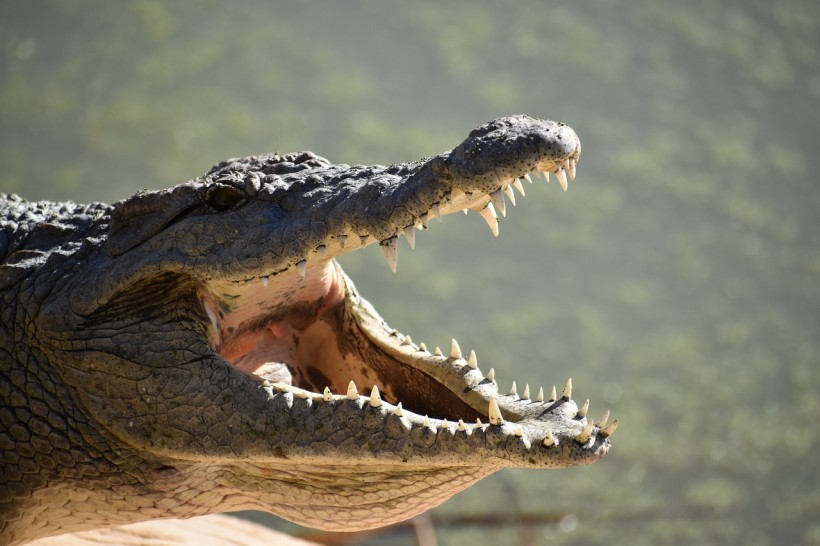Crocodile attacks are 100 times deadlier than shark attacks and happen more frequently from individual incidents to mass attacks on World War II soldiers. Crocodiles are considered one of the most dangerous animals that live in water, especially because they eat humans even if they are not part of their usual diet.
Out of the 26 known species of crocodiles, eight of these species opportunistically prey on humans while most of them generally pose no serious threat.

Deadly Crocodile Attacks More Frequent Than Shark Attacks: Recent Cases Reported in Namibia, Indonesia While Victims are Bathing
Recent Crocodile Attacks on Humans Reported in Namibia and Indonesia
On Saturday, the remains of a 26-year-old man were retrieved at Mupini village in the Kavango West region of Namibia. The local news outlet, The Namibian, reported that the man was killed by a crocodile while he was taking a bath in the Okavango River on Friday.
Detective inspector Raimbert Muronga, the head of community affairs of the police, said that the victim and his friends went to the river at around 6 PM when he suddenly became the victim of a crocodilian attack. Muronga added that the crocodile has since been put down by the Namibian Police.
Another incident of a crocodile attack happened in the Bebatu river in Indonesia. MailOnline reported that the 51-year-old victim was also bathing in the water after gathering palm leaves when the 13-foot-long crocodile attached him on February 15. He tried to fight it but he was dragged deep in the water, while his friends helplessly tried to scare away the animal.
The authorities continued their search for the victim, named Luther, as his body did not turn up yet. The army and police carried out the search and rescue mission although they are constrained due to the hindrances in the location and lack of equipment.
Experts and authorities have always warned people to be careful when swimming in bodies of water where crocodiles usually live. More so, it is not advisable to swim during the night as visibility is lower. Experts remind the public to always follow the signs to prevent such incidents from happening.
ALSO READ: Crocodile Had Dinosaur For Its Last Meal Based On 95-Million Year Old Fossil, Study Claims
Why Do Crocodiles Attack People?
According to the International Union for Conservation of Nature (IUCN) Crocodile Specialist Group, the eight best-known crocodile species that attack humans are saltwater crocodile (Crocodylus porosus), American crocodile (C. acutus), American alligator (Alligator mississippiensis), Nile crocodile (C. niloticus), mugger crocodile (C. palustris), black caiman (Melanosuchus niger).
Experts said that crocodiles attack humans because they associate them with food since some people feed them. Although humans are not their natural prey, they can still attack them and pose danger to their safety.
They can attack both on land and water and can even bite off a limb, while larger ones tend to swallow a person whole, according to Wild Explained. They quickly move on land to catch their prey but are quicker when in water to outswim anyone, making them even more dangerous.
Crocodiles ambush humans to ensure a successful hunt. They do this by moving quietly in the water and only pounce on their prey when they are sure they can kill it, which is why they are the top predator in their environment.
Despite these crocodile attack cases, authorities remind the public to not illegally kill crocodiles like what happened to a 40-year-old crocodile in North Queensland who was seen lurking near a cattle station, ABC reported. The 37-year-old owner was fined $3,000 for keeping the carcass of the crocodile believed to be illegally taken. Saltwater crocodiles are classified as vulnerable wildlife and their population in the area has declined over the past few years.
RELATED ARTICLE: Car-Sized Crocodile Captured at Tourist Spot in Flora River Nature Park
Check out more news and information on Crocodiles in Science Times.














